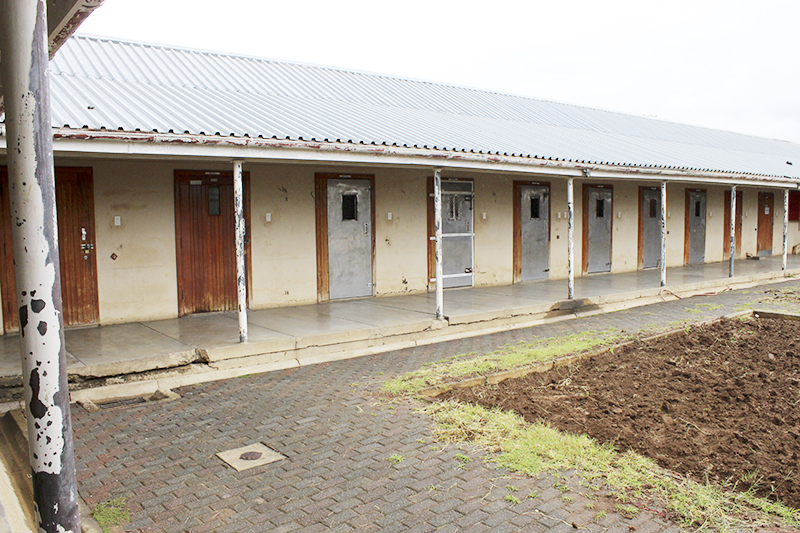Nearly six months after initial media reports of alleged human rights violations at Tower Hospital in Fort Beaufort, Health Ombudsman Malegapuru Makgoba released his 60-plus page investigative report. Former Tower psychiatrist Dr Kiran Sukeri blew the whistle in February this year in response to witnessing alleged poor patient care and mismanagement by hospital officials.
Makgoba hauled both the media and Sukeri over the coals, discrediting Sukeri in particular. In contrast Health MEC Helen Sauls-August, in a statement issued the same day, saluted whistleblowers for their “central role” in exposing the hospital’s issues.
Sukeri’s claims were investigated by public bodies including the South African Human Rights Commission (SAHRC), and the South African Society of Psychiatry (SASOP). SASOP released a damning report of the hospital at the end of March. Their findings included the inhumane use of seclusion rooms and improper record keeping, particularly death registers. SASOP President Prof Bernard Janse van Rensberg told Grocott’s Mail in March that the crisis at Tower could be worse than Life Esidimeni.
Grocott’s Mail in collaboration with Health-e News continued investigations, culminating in a two-part documentary series that aired eNCA’s Checkpoint in June.
In his address on Thursday 23 August, Makgoba called Tower Hospital a “Life Esidimeni copycat phenomena”, saying it had “created a national hysteria” and had blown “a simple complaint into a national issue that it should not have been”.
He called Sukeri’s complaint “coy”, “deceptive” and “complex”, stating that the complainant spoke about systemic failures rather than the hospital itself. In a direct personal attack, Makgoba said, “Nobody wants a to work with [Kiran Sukeri] anymore, because they don’t trust him.”
Makgoba stated that allegations of human rights violations had been conflated with cases of professional misconduct, emphasising that there were no human rights violations at Tower. “I want that to be remembered”, he said.
He also cited an error made by Sukeri in regards to dates, which had been later corrected and apologised for.
“Sukeri’s complaint damaged our reputation as a country, of coworkers in the Eastern Cape. It was a basic statistic error.” Makgoba later called for Sukeri to be reported to the Health Professions Council of South Africa (HPCSA).
He further suggested the appointment of an administrator of mental healthcare services in the Eastern Cape, as well as for mental healthcare to be taken back by the Minister of Health as a national competency. Minister of Health Aaron Motsoaledi later spoke, stating that the Department of Health will issue a contract to hire 51 private psychiatrists and 72 psychologists to address “backlogs” in mental healthcare facilities.
Makgoba targeted the media for “peddling falsities”, appealing for them to retract articles about Tower and issue public apologies. “I want to ask the media and Dr Sukeri with all these allegations, and make a public apology. Together. The media as the fourth state is important for democracy. We can’t do that with a media that peddles lies.”
While Makgoba delivered his report, Eastern Cape MEC for Health, Helen Sauls-August, issued a statement acknowledging Makgoba’s recommendations and thanking the work of whistleblowers.
“The report reveals our weaknesses and creates opportunities for us to jack up our systems. We will implement the remedial action of the report to ensure that what has happened at Tower Hospital does not happen again in any of our facilities. We salute the whistle blowers who raised these issues at the facility so that they may be corrected.”
Sauls-August wrote that whistleblowers played a “central role” in exposing the hospital’s issues.
The statement confirmed the appointment of a new Acting CEO, Dr Bayeni, as well as the replacement of hospital management staff and nursing managers. It also detailed plans for ward renovations and the re-training of staff in accordance with the Mental Healthcare Act.
“We have learnt the hard lessons that our institutions have not internalised the new mental health human rights culture in particular the need to establish adequate social support before patients are discharged.”
Sauls-August affirmed that mental healthcare would be a high priority for this financial year.
Grocott’s Mail, in conjunction with PSAM will continue to investigate the Eastern Cape’s mental healthcare crisis.
Read more about Grocott’s Mail’s previous investigations here:
http://www.grocotts.co.za/2018/04/01/tower-exposes-deeper-crisis-doctors-warn/
http://www.grocotts.co.za/2018/03/15/hospital-expose-call-for-whistleblower-protection/
http://www.grocotts.co.za/2018/05/25/police-confirm-death-at-tower-hospital/


